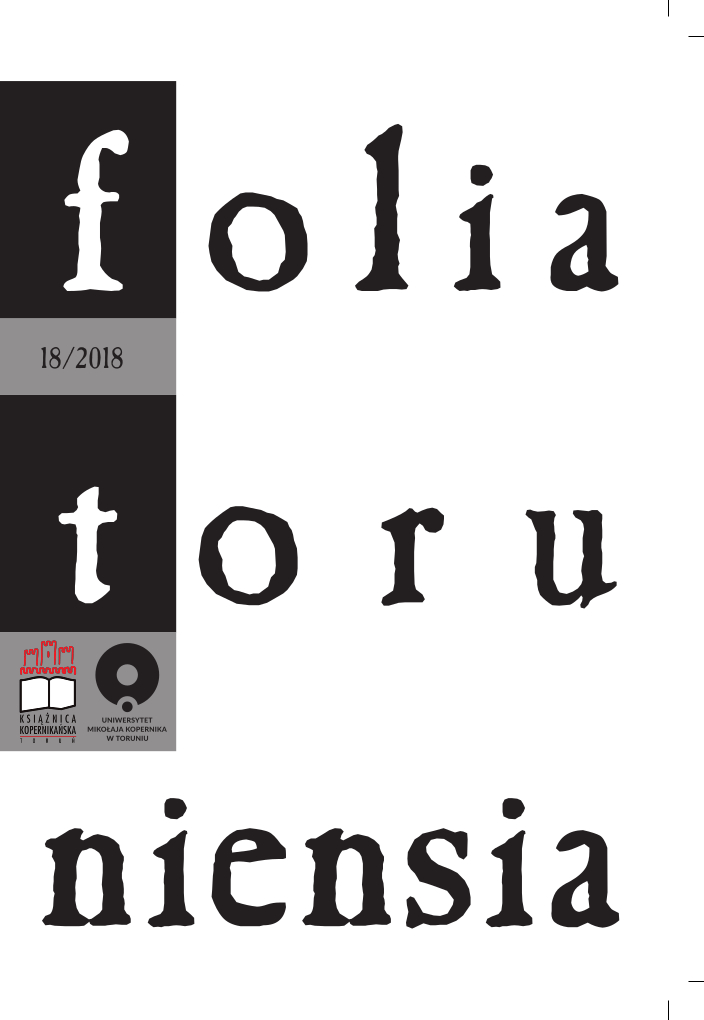Comparative analysis of selected market solutions for e-learning systems
DOI:
https://doi.org/10.12775/FT.2018.009Keywords
e-learning, didactics, education, Fronter, Moodle, CourseraAbstract
Aim: The aim of the article is to present e-learning as a tool that in the era of ubiquitous computerization is one of the largest teaching support systems, both for students and for teachers. Research method: The author carried out a comparative analysis, wanting to show the differences between the discussed e-learning platforms, at the same time indicating the strengths and weaknesses of this tool, used as didactic support for traditional forms of teaching. Conclusions: The organization of work with the e-learning system depends to a large extent on its architecture, configuration or didactic tasks that such a system should meet. Particular attention should be paid to the fact that the differences may arise from systems based on the so-called free and commercial licenses, where both have their advantages and disadvantages.
References
Bechina, Aurilla i Hustad Eli. 2010. “A Framework to Understand Enablers and Inhibitors in a Learning Management System: Experiences from Fronter.” W The Seventh International Conference on eLearning for Knowledge-Based Society, 16–17 December 2010. Dostęp Kwiecień 9, 2018. http://ijcim.th.org/SpecialEditions/v18nSP1/02_Full_Aurilla%20Aurelie%20Bechina_A%20Framework%20to%20Understand%20Enablers%20and%20Inhibitors.pdf.
Coursere. b.d. Meet our Partners. Dostęp Kwiecień 9, 2018. https://www.coursera.org/about/partners.
Coursere. b.d. We envision a world where anyone, anywhere can transform their life by accessing the worlds best learning experience. Dostęp Kwiecień 9, 2018. https://about.coursera.org/.
Dąbrowski, Marcin. 2013. E-learning w szkolnictwie wyższym. Studia BAS 3(35): 203–212.
Gaebel, Michael. 2014. MOOC masowe otwarte kursy online. Warszawa: European University Association; Fundacja Rozwoju Systemu Edukacji. Dostęp Kwiecień 9, 2018. http://czytelnia.frse.org.pl/media/mooc-michael-gaebel-eua-frse.pdf.
Goban-Klass, Tomasz i Piotr Sienkiewicz. 1999. Społeczeństwo informacyjne: Szanse, zagrożenia, wyzwania. Kraków: Wydawnictwo Fundacji Postępu Telekomunikacji.
Gogos, Roberta. 2013. A brief history of elearning (infographic). Ostatnia modyfikacja Sierpień 15, 2013. https://www.efrontlearning.com/blog/2013/08/abrief-history-of-elearning-infographic.html.
Itslearning. b.d. ”Our story.” Dostęp Kwiecień 9, 2018. https://itslearning.com/us/about-us/our-story/.
Krzętowska, Agnieszka. b.d. MOOCs wyzwanie dla szkolnictwa wyższego. Dostęp Kwiecień 9, 2018. https://repo.pw.edu.pl/docstore/download/WUTe83c0e334b5e48188b9ba596fd329cfb/moocs.pdf.
Maziarz, Paweł. 2016. Pierwszy komputer obchodzi 70 urodziny – zobacz jak rozwijały się pecety. Ostatnia modyfikacja Czerwiec 22, 2016. http://www.benchmark.pl/aktualnosci/historia-rozwoju-komputerow-i-laptopow-1946-2016.html.
Mielcarek, Przemysław, Parczewski Marcin i Lech Medeyski. 2004. „E-learning – analiza celów i możliwości ich realizacji na podstawie istniejących specyfikacji i standardów.” Prace Naukowe Akademii Ekonomicznej we Wrocławiu, 30 (1044): 548–556.
Miniwatts Marketing Group. 2017. Internet World Stats. Ostatnia modyfikacja Grudzień 31, 2017. https://www.internetworldstats.com/stats.htm.
Plebańska, Marlena i Piotr Kopciał. 2012. „Project-Based e-Learning z wykorzystaniem platformy zdalnego nauczania Fronter.” W E-learning– narzędzia i praktyka, red. M. Dąbrowski i M. Zając, 31–41. Warszawa: Fundacja Promocji i Akredytacji Kierunków Ekonomicznych.
Plebańska, Marlena i Piotr Kopciał. 2013. „Platforma Fronter jako system zarządzania wiedzą.” e-mentor 3: 73–80. Dostęp Kwiecień 9, 2018. www.e-mentor.edu.pl.
Prządka, Weronika. 2017. “Analiza porównawcza narzędzi e-learningu.” Journal of Computer Sciences Institute 3: 64–69.
Redlarski, Krzysztof i Igor Garnik. 2014. „Zastosowanie systemów e-learningu w szkolnictwie wyższym.” W Zarządzanie informacyjnym środowiskiem pracy, red. B. A. Basińska i I. Garnik, 77–94. Gdańsk: Wydział Zarządzania i Ekonomii Politechniki Gdańskiej.
Serfanowicz, Agnieszka. 2015. Jak powstał internet? Historie prawdziwe. Ostatnia modyfikacja Sierpień 20, 2015. http://softonet.pl/publikacje/poradniki/Jak.powstal.internet.Historia.prawdziwa,1192.
Downloads
Published
How to Cite
Issue
Section
License
Authors sign the license agreement, where authors have copyright but license exclusive rights in their article to the publisher. In this case authors have a range of rights, including:
- The right to share or reuse their article in the same ways permitted to third parties under the Creative Commons Attribution-NoDerivatives 4.0 (CC BY-ND 4.0) license. Following it, the author can "copy and redistribute the material in any medium or format for any purpose, even commercially. The licensor cannot revoke these freedoms as long as you follow the license terms."
- Authors retain patent, trademark and other intellectual property rights (including research data).
- Authors receive proper attribution and credit for the published work.
![]()
Stats
Number of views and downloads: 487
Number of citations: 0



